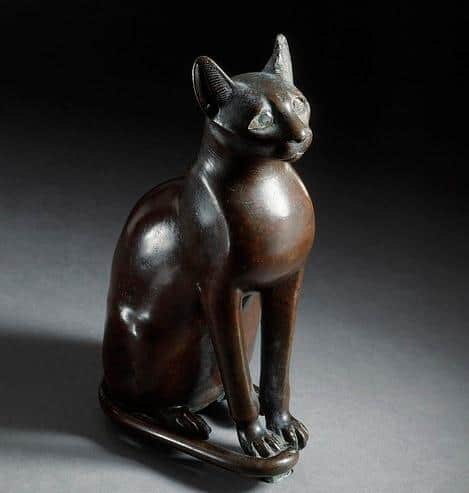
-
Find the right food for your petTake this quiz to see which food may be the best for your furry friend.Find the right food for your petTake this quiz to see which food may be the best for your furry friend.Health CategoryFeatured products
 Adult Chicken & Barley Recipe Dog Food
Adult Chicken & Barley Recipe Dog FoodSupports lean muscle and beautiful coat for adult dogs
Shop Now Perfect Weight Adult Small & Mini Dog Mousse with Turkey
Perfect Weight Adult Small & Mini Dog Mousse with TurkeyHill's Science Diet Adult Small & Mini Perfect Weight Dog Food with Turkey is a complete pet food for small breed adult dogs, including those that are less active, neutered or otherwise prone to weight gain.
Shop Now Adult Light Large Breed Chicken Meal & Barley Recipe Dog Food
Adult Light Large Breed Chicken Meal & Barley Recipe Dog FoodFewer calories for less active large breed dogs
Shop NowFeatured products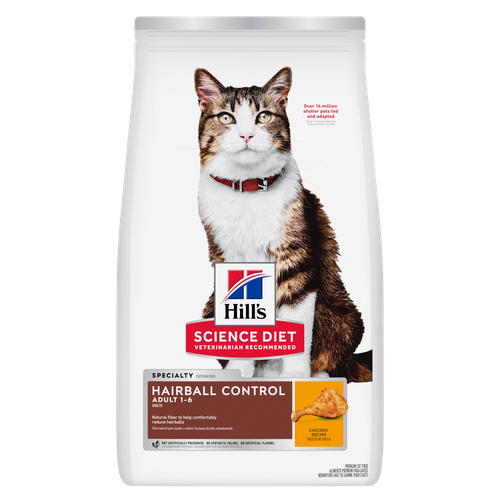 Adult Hairball Control Chicken Recipe Cat Food
Adult Hairball Control Chicken Recipe Cat FoodNatural fibre comfortably reduces hairballs
Shop Now Adult Perfect Digestion Chicken, Barley & Whole Oats Recipe Cat Food
Adult Perfect Digestion Chicken, Barley & Whole Oats Recipe Cat FoodHill's Science Diet's breakthrough nutrition supports ultimate digestive well-being & healthy microbiome
Shop Now Adult Healthy Cuisine Roasted Chicken & Rice Medley Cat Food
Adult Healthy Cuisine Roasted Chicken & Rice Medley Cat FoodDelicious roasted chicken and rice in a mouthwatering sauce
Shop Now -
DogCat
- Cat Tips & Articles
-
Health Category
- Weight
- Skin & Food Sensitivities
- Urinary
- Digestive
- Kidney
- Dental
- Serious Illness
-
Life Stage
- Kitten Nutrition
- Adult Nutrition
Featured articles Fun Ideas for Kids and Pets This Summer
Fun Ideas for Kids and Pets This SummerOutdoor summer activities with your dog or cat can be fun for kids, too. Learn how they also teach kids responsibility & creates a bond with their pet.
Read More Water
WaterWater is the most important nutrient of all and essential for life. Animals can lose almost all their fat and half their protein and still survive, but if they lose 15% of their water, it will mean death.
Read More Tips on How to Store Your Dog or Cat Food Properly
Tips on How to Store Your Dog or Cat Food ProperlyWhere you store your cat and dog food can make a big difference in the quality and freshness once it is opened. Here are some common questions and recommendations for optimal storage for all of Hill’s dry and canned cat and dog food.
Read More -


What's your cat doing right now? Napping? Begging for food? Batting around a toy mouse? What happened in the history of cats to transform this once wild creature into a pet so accustomed to the comforts of a domesticated lifestyle?
Millennia of Feline Friends
Until recently, researchers estimated that cat domestication dated back to 9,500 years ago. However, a groundbreaking study published in Science magazine theorizes that the history of cats as companion animals goes back much further, approximately 12,000 years. Scientists analyzed the genetic composition of 79 domesticated cats and their wild ancestors, concluding that contemporary cats descend from the same species: Felis silvestris ("cat of the woods"). Cat domestication occurred in the Middle East in the Fertile Crescent, a region along the Tigris and Euphrates rivers that includes Iraq, Israel and Lebanon.
It's well known that some nations worshiped cats for thousands of years and treated them like royalty, such as adorning their pets with expensive necklaces, and even mummifying their kitties when they died. Ancient Egyptians incorporated cats into their worship, most famously the goddess Bastet, who could morph into a cat. Perhaps this is why our furry friends fully expect us to worship them.
The importance of this revised timeline, explains David Zax, writing for Smithsonian, is that it underscores that cats have been helping humans for nearly as long as dogs have, just in a different capacity.
Still-Wild Beasts
As Gwynn Guilford writes in The Atlantic, cat genome expert Wes Warren explains that "cats, unlike dogs, are really only semi-domesticated." According to Warren, cat domestication began in earnest around the same time as people shifted toward a more agricultural society. It was a win-win situation for both sides. Farmers needed cats to shoo rodents out of their storage buildings, and the cats needed a reliable food source from the critters they hunted as well as the rewards given to them by the farmers.
Feed a cat once, and she's your friend forever, right?
Maybe not, Guilford notes. Based on cat genome research, one of the main differences between the domestication of cats and that of dogs is that cats are not entirely dependent on humans for their food. "House cats still have the broadest hearing range among carnivores, which allows them to detect their prey's movement," she writes. "They also retain their night-vision abilities and the ability to digest high-protein, high-fat diets." So, although cats prefer their cat food prepared and served by humans, they know how to go out and hunt dinner if necessary.


Tasty Tips
Not Everyone's a Cat Person
There are a few unfortunate blips in the history of cats when the animals weren't so well-received, particularly in the Middle Ages. Although their stellar hunting skills made cats so appealing, some people were wary of the precise and stealthy ways cats attacked their prey. Certain folks went so far as to pronounce cats the "devil's pet." Her resistance to being fully domesticated didn't help a cat's case, either.
This fearful attitude carried over into the early American witch-hunting years, which also was not a great time to be a cat. Black cats, in particular, were unfairly seen as evil creatures that assisted their owners in mysterious ways. Unfortunately, this cat myth persists, but more and more people now realize that black cats are not any spookier than their other-hued kitty counterparts. However, not everyone during these early periods held negative feelings toward cats. As noted earlier, farmers and townspeople alike appreciated the good work that mousers did to keep food supplies safe, and nunneries also kept cats as pets.
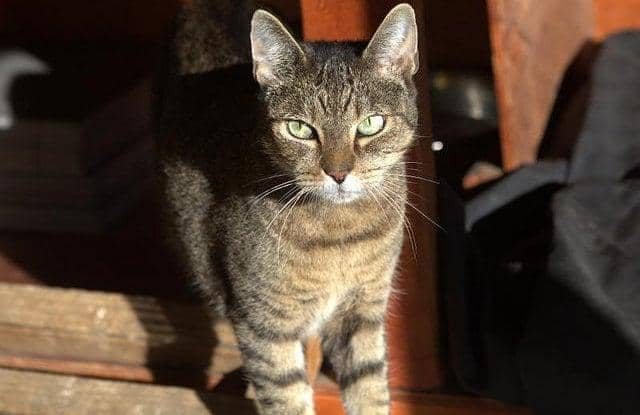 In fact, one of the most legendary cats in history lived in medieval England, says the BBC. Richard "Dick" Whittington was a young man who went to London looking for work. He got a cat to help keep mice out of his attic bedroom. As the story goes, the wealthy merchant for whom Whittington worked offered his servants the opportunity to pay into the wealth he'd earn on a sea voyage. Whittington, having no money, gave the merchant the cat instead. As luck would have it, the cat killed all the rats onboard, and once the ship returned, the king bought Whittington's cat for a large sum of gold. Although the story of Dick Whittington's cat cannot be confirmed, the kitty has evolved into England's most famous cat.
In fact, one of the most legendary cats in history lived in medieval England, says the BBC. Richard "Dick" Whittington was a young man who went to London looking for work. He got a cat to help keep mice out of his attic bedroom. As the story goes, the wealthy merchant for whom Whittington worked offered his servants the opportunity to pay into the wealth he'd earn on a sea voyage. Whittington, having no money, gave the merchant the cat instead. As luck would have it, the cat killed all the rats onboard, and once the ship returned, the king bought Whittington's cat for a large sum of gold. Although the story of Dick Whittington's cat cannot be confirmed, the kitty has evolved into England's most famous cat.
The Modern Cat
World leaders who had a fondness for cats also helped to establish the cat as a desirable house pet. Winston Churchill, Prime Minister of Britain during World War II and animal lover, famously kept cats at his estate, Chartwell, as well as at his official residence while in office. In America, the first cats to reside in the White House were Tabby and Dixie, beloved pets of Abraham Lincoln. It's said that President Lincoln loved cats so much, he even took in strays during his tenure in Washington.
Although you'd be hard pressed to find a police or rescue cat out on the streets, cats have been contributing to modern society longer than you may realize, with their keen hunting instinct being a key factor. Cats even were recruited — or, in some cases, volunteered their services — to help during wartime by keeping soldiers' food safe from rodents and, therefore, from disease and starvation, PetMD shares.
Reflecting on the long, rich history of cats still leaves one question unanswered: Did humans domesticate cats, or did they simply decide to live with us? The answer to both is "yes." Pet parents and their cats share a special bond and cat people are more than happy to worship their feline friends because the love cats give in return makes all that work (and persistence) worthwhile.


Christine O'Brien is a writer, mom, and long-time cat parent whose two Russian Blues rule the house. Her work also appears in Care.com, What to Expect, and Fit Pregnancy, where she writes about pets, pregnancy, and family life. Find and follow her on Instagram and Twitter @brovelliobrien.
Related products

Delicious roasted chicken and rice in a mouthwatering sauce

Healthy digestion for easy litter box clean-up

Natural fibre comfortably reduces hairballs

Hill's Science Diet's breakthrough nutrition supports ultimate digestive well-being & healthy microbiome
Related articles
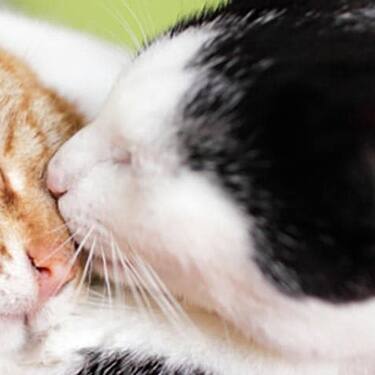
Being overweight puts a cat at risk for developing many serious health issues. Weight gain indicates an increase in body fat and usually results when your cat eats too much and exercises too little.
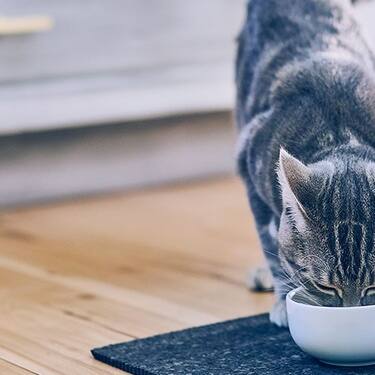
Understand the symptoms of a chronic upset stomach in your cat, and learn how to help sooth their discomfort.
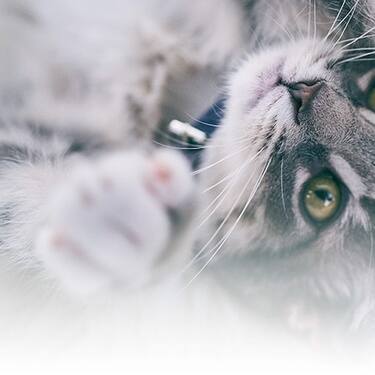
Obesity affects more than 30 percent of cats in America. Learn how you can properly feed and exercise your cat to improve its weight management.
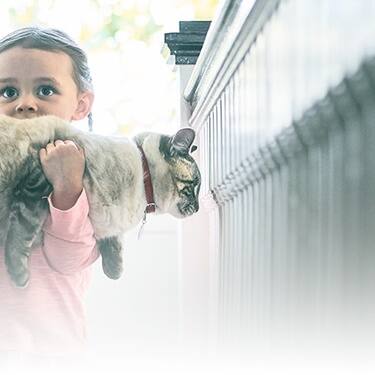
Provide the best possible treatment for cats with sensitive skin by spotting the signs, knowing the causes, and understanding the remedies. Learn more now.

Put your cat on a diet without them knowing
Our low calorie formula helps you control your cat's weight. It's packed with high-quality protein for building lean muscles, and made with purposeful ingredients for a flavorful, nutritious meal. Clinically proven antioxidants, Vitamin C+E, help promote a healthy immune system.
Put your cat on a diet without them knowing
Our low calorie formula helps you control your cat's weight. It's packed with high-quality protein for building lean muscles, and made with purposeful ingredients for a flavorful, nutritious meal. Clinically proven antioxidants, Vitamin C+E, help promote a healthy immune system.


